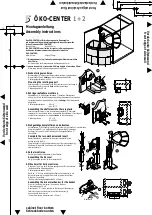
Depending on the
Channel Type
, different call states can be sent by the TSP on individual
channels. Note the buttons beneath the
Channel Assignment
on the individual boxes. These are
used to force different signaling states. Ringing is forced by clicking the
button. Off-hook is
forced by clicking the
button. On-hook is done by clicking the
button with the receiver down.
The
Normal
button puts the channel back to normal operation.
The signaling bits states are displayed under the
Monitor
button on the
TSP Diagnostics
screen in
channel tiles for T1/E1 channels only. For ESF framing and E1, it will indicate the ABCD bit
states. For D4 framing, it will indicate the bit states in ABAB format. Only one channel can be
monitored at a time.
TSP Diagnostics
40-400-00049, Rev. J
Page 47
















































